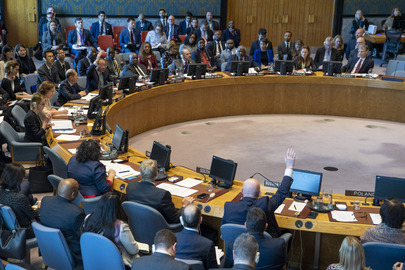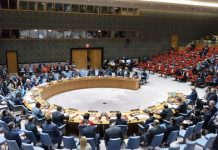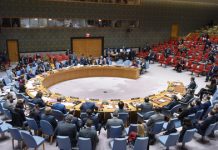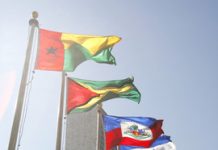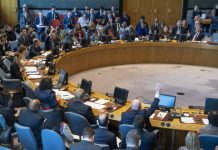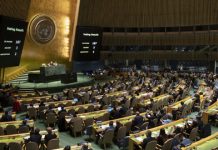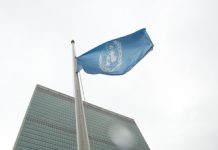Syria crisis: ‘Key priority’ is preserving evidence of crimes, say UN investigators
The shift of power in Syria and the chance to finally access evidence of horrific abuse in a search for accountability is now closer than ever – but proof must be preserved.
That’s the message of top UN investigator Robert Petit, the head of the UN’s International, Impartial and Independent Mechanism Investigating Serious Crimes in Syria (IIIM).
Speaking in Geneva on Tuesday, Mr. Petit said that it was possible “finally” to establish the fate of tens of thousands of people who’d been “illegally arrested…and suffered years of violence” inside prison, almost 14 years after the start of the Assad regime’s crackdown on peaceful protests, that developed into full-blown war.
Mr. Petit acknowledged that it was hard to say how much evidence had been lost as Syrians tried to track down their relatives, as computers and hard drives had been “burned and smashed” during the regime’s collapse.
“What we have, however, also noted with hope, is a stated awareness from the transitional authorities and from Syrian civil society actors of the need to preserve evidence. When you’re talking about a government, a state apparatus, who for 14 years used every aspect of that apparatus to commit crimes, you will have a massive amount of documentation left behind.”
Meanwhile, UN humanitarians warned that Syria’s crisis is worsening, with fighting in the northeast and in the occupied Golan, bordering Israel.
The UN refugee agency, UNHCR, reported that Israeli forces had issued orders to villagers in the Golan “to vacate” their homes, but “that people have resisted leaving”.
Avian flu reported in 108 countries across five continents, says UN health agency
Avian influenza has caused the deaths of more than 300 million birds worldwide and the virus “is increasingly crossing species barriers”, according to UN health officers.
In an update on the mutating virus – known as H5N1 – Dr. Madhur Dhingra from the Food and Agriculture Organization, FAO, said that it had “spilled over into wildlife”.
More than 500 bird species have been infected along with at least 70 mammalian species, including the endangered California condor and polar bears.
In regions that are heavily reliant on poultry as a primary source of protein, the FAO medic insisted that avian influenza “poses a serious threat to food and nutrition security”.
Dr Dhingra warned that hundreds of millions of people’s livelihoods have been affected by the virus – an economic burden on farmers that could prevent them from investing in adequate biosafety measures.
Following the emergence of H5N1 influenza virus in dairy cattle, the WHO has joined calls for strengthened surveillance and biosecurity on farms, to keep animals and people safe.
The UN health agency said that in 2024, 76 people have been infected with the H5 avian influenza strain, and most were farm workers. More than 60 cases originated in the US, which has also reported outbreaks of H5 in wildlife and poultry and, more recently, in dairy cattle.
There have also been cases reported in Australia, Canada, China, Cambodia and Viet Nam.
Sudan war: UN aid teams deliver emergency food relief to more than 800,000 people
To Sudan, where UN aid teams have delivered emergency food assistance to more than 800,000 people in famine and famine risk areas across the war-torn country.
The development is part of a surge by WFP – the UN World Food Programme – to help millions of people in the country who are in the grip of a humanitarian emergency.
In an update on Tuesday, WFP warned that progress remains “fragile, as the situation on the ground is volatile and dangerous”.
The UN agency reported that it has provided food, cash and nutrition assistance to a total of 2.8 million people in October; that’s the highest monthly number recorded since the conflict erupted in April last year between the country’s rival militaries.
In all, WFP has reached nearly half of all 1.7 million people either facing famine or who are assessed to be “at risk” in Sudan.
The UN agency said that it is still “pushing” to get vital food and nutrition assistance to 14 hunger hotspots, many in embattled locations across Darfur, Kordofan, Khartoum and Gezira, where conflict continues to escalate.
Daniel Johnson, UN News
Music composed and produced by Joachim Harris. All rights reserved
Source of original article: United Nations (news.un.org). Photo credit: UN. The content of this article does not necessarily reflect the views or opinion of Global Diaspora News (www.globaldiasporanews.com).
To submit your press release: (https://www.globaldiasporanews.com/pr).
To advertise on Global Diaspora News: (www.globaldiasporanews.com/ads).
Sign up to Global Diaspora News newsletter (https://www.globaldiasporanews.com/newsletter/) to start receiving updates and opportunities directly in your email inbox for free.


